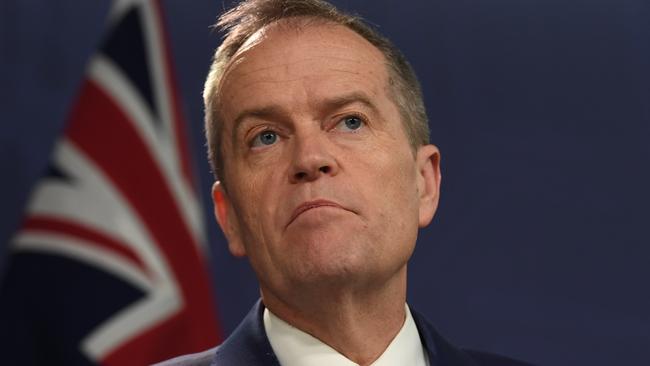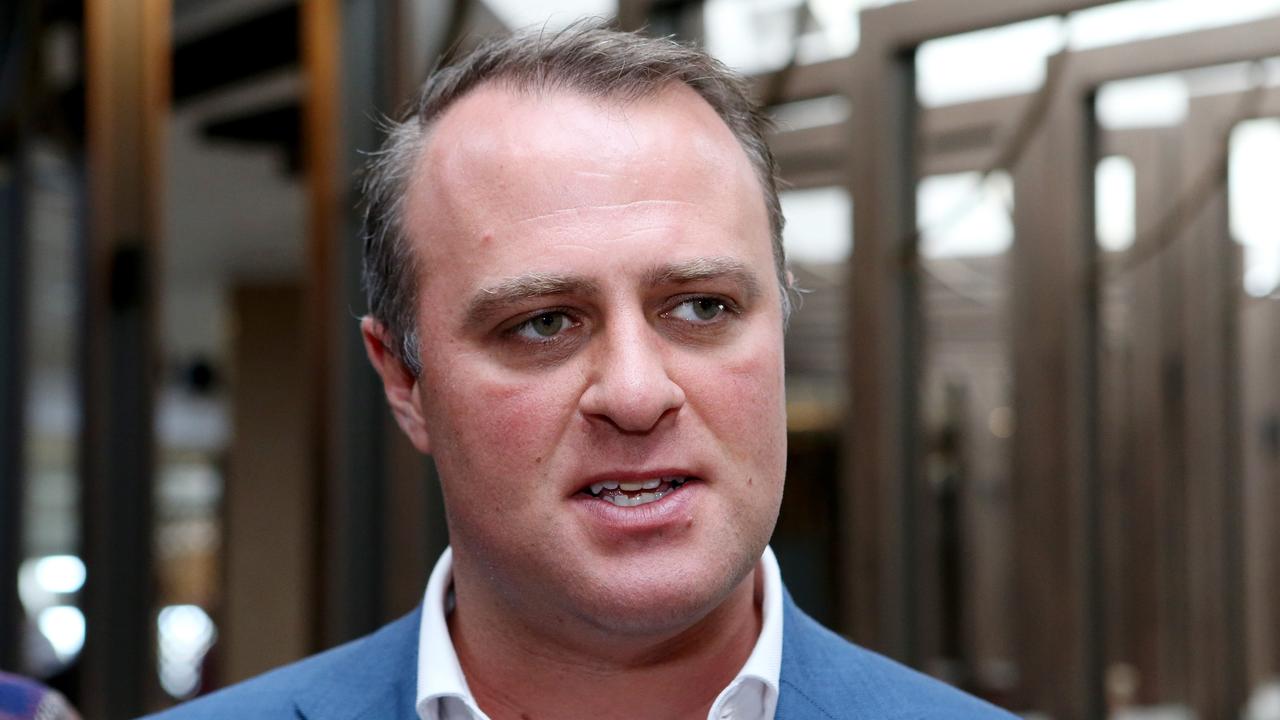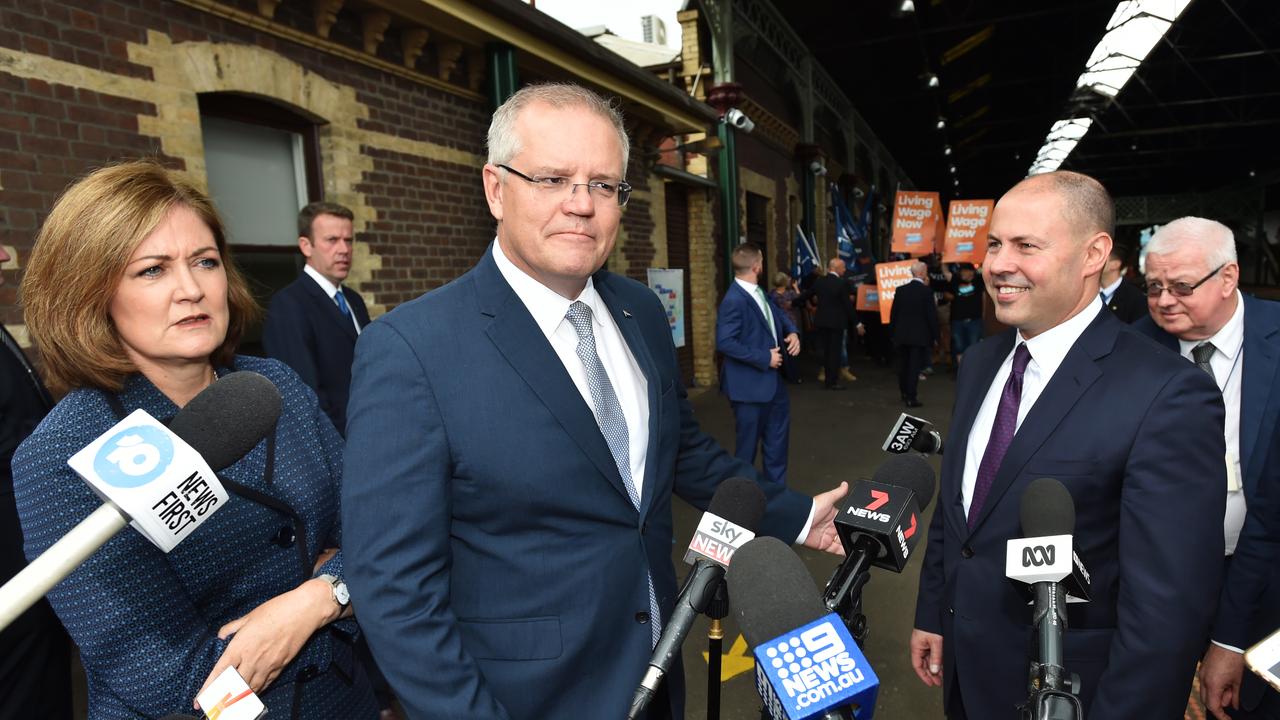Shorten to sap wealthy for $76bn to fund election promises
Labor’s assault on higher income taxpayers would raise $10.8bn over the next four years and $76bn over the next decade.

Labor’s assault on higher income taxpayers would raise $10.8 billion over the next four years and $76bn over the next decade, but the policies have sparked an attack from business leaders over Bill Shorten’s focus on income redistribution at the expense of growth.
The 3 per cent of taxpayers paying the top marginal tax rate already provide 30 per cent of tax revenue, a share Labor’s policies and bracket creep would push towards 35 per cent.
Business figures criticised Labor’s higher tax plan as a mechanism for alleviating social inequality and accused Mr Shorten of misleading Australians.
Business Council of Australia chief executive Jennifer Westacott criticised Mr Shorten’s statement that cuts to the corporate tax rate would “impede growth”, saying the remark represented a return to economic “revisionism on steroids”. “Politicians can have differing opinions in the company tax debate, but they shouldn’t mislead the public about the facts,” she said.
The combined impact of Labor’s revenue measures, raising just under $11bn over the forward estimates, is equivalent to about a quarter of the projected $45.9bn deficit. Labor would use the extra funds to deliver on election promises, including extra money for schools and universities and an exemption for low-income earners from a 0.5-percentage-point increase in the Medicare levy.
Malcolm Turnbull said the Opposition Leader’s proposed shake-up to discretionary trusts, estimated to raise $17.2bn over a decade, would “kick small business in the guts” and curb entrepreneurship. “(Mr Shorten) wants to run a politics of envy campaign,” he said.
“He wants to tear down anyone who is trying to have a go.
“We’re providing tax relief because we know that will encourage people to invest and employ and get ahead.”
Ms Westacott said a looming test for Labor was whether it would wind back the legislated tax cuts for companies with a turnover of up to $50 million.
She also took aim at the plan to reinstate the 2 per cent deficit levy, suggesting the opposition was looking at “endlessly redistributing a diminishing pool of resources”. “Where is the plan to grow the size of the pie?” she asked.
Labor’s attack on the use of discretionary trusts for income splitting follows other policies targeting high-income earners, including restrictions on negative gearing, a reduction in the capital gains tax discount, an increase in the top marginal tax rate and a cap on the maximum tax deduction for accounting fees. Labor had also planned to clamp down on superannuation concessions for high-income earners, but the Coalition adopted a similar policy in its 2015-16 budget, raising $6bn over the four-year budget period.
Announcing his policy to impose a minimum tax on trust distributions on Sunday, Mr Shorten claimed support for Labor’s policy direction from the global economic agencies. “Every serious economic authority — from the International Monetary Fund to the OECD — says that tackling inequality is a growth strategy,” Mr Shorten said. “It’s why we must seek to include more Australians in the opportunities of Australia.”
Labor says it would quarantine the government’s corporate tax cuts to small businesses. Mr Shorten yesterday fuelled speculation he would partially wind back the legislated tax breaks for companies with a turnover of up to $50m.
“Do you really think a business at $49.9m is a small business? I don’t,” he said on ABC radio. “We don’t believe that the case has been made out for that.”
Labor’s plan to make the deficit levy permanent would increase the top marginal tax rate to 49.5 per cent — on top of the Medicare levy — and raise $4.5bn over a four-year budget period.
The opposition has accepted the government’s proposed increase to the Medicare Levy from 2 to 2.5 per cent, but only for taxpayers in the top two tax brackets. That increase would cost people on incomes above $87,000 about $4.9bn over a four-year period, while exempting those on lower incomes would cost a Labor budget $3.3bn.
The Parliamentary Budget Office’s costing of Labor’s proposed imposition of a minimum 30 per cent rate of tax on distributions from discretionary trusts assumes that they remain attractive for people on the top marginal tax rate to split income with lower-earning family members, with the minimum tax rate raising an additional $4.1bn over four years and $17.2bn over a decade.
Small Business Council of Australia chief executive Peter Strong took aim at Labor’s crackdown on trusts saying they were often used by struggling business owners to distribute income — not just by wealthy individuals pursuing tax minimisation strategies. He said Labor’s plan to overturn Sunday penalty rate reductions approved by the industrial umpire was a further example of Mr Shorten targeting small businesses.
Grattan Institute chief executive John Daley said Labor’s trust shake-up was a “perfectly sensible reform” because it targeted an “anomaly” that allowed them to be used in some instances as vehicles for income splitting.
Labor’s negative gearing and capital gains tax reforms provide a relatively small contribution to the budget over the four-year estimate period, but the PBO’s costing shows the annual budget saving would grow rapidly, increasing threefold from $1.4bn in 2019-20 to $4.2bn by 2022-23 and reaching $7.8bn a year by 2026-27.
At present, only half of the income individuals earn from capital gains is taxed; Labor’s policy would increase this to three-quarters. Labor would also restrict the use of negative gearing to investments in newly constructed dwellings, preventing individuals or companies from claiming deductions for interest on borrowings against non-real-estate income.
The other Labor policy affecting high-income earners is the $3000 cap on deductions for managing tax affairs. It raises relatively little at $300m over four years and $1.8bn over a decade, but is consistent with its strategy of tackling concessions used by high-income earners.



